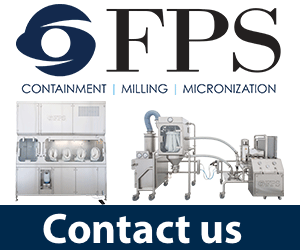Berkshire Sterile Manufacturing (BSM) received more than $165,000 from Eversource and Berkshire Gas, a subsidiary of AVANGRID, as an energy incentive for installing more expensive yet energy-efficient equipment in their sterile filling lines.
The more efficient equipment reduces power plant demands for additional power generation and ultimately delays the need to build additional generation capability.
The total energy savings from the improvements were estimated to be 733,381 kWh of electricity and 26,626 therms of gas annually. The combined decrease in energy use equates to a reduction of 13,174,624 pounds of carbon dioxide emissions each year. This reduction in carbon dioxide is comparable to planting 275,000 mature trees (approximately 50 acres of forest) or removing 1300 cars from the road each year.
A major energy savings resulted from replacing older equipment used to produce injectable grade water (critical for manufacturing injectable treatments) with a more efficient still. Injectable grade water, also known as water for injection (WFI), is high quality water with no significant contamination and is used to produce injectable medicines. WFI can be produced by distillation but must first undergo extensive pretreatment through various filtration steps, deionisation and removal of chlorine. After introduction into the still, the pretreated water is heated to produce steam. This removes heavier ions, particulates, and endotoxins from the water. The pure steam is condensed with chillers producing WFI that is safe to inject. Less expensive and less efficient equipment uses large amounts of energy to produce the WFI required for drug manufacture.
The new system requires less gas to produce the steam and less chilled water
Berkshire Sterile Manufacturing replaced their steam powered still that produces WFI with a very efficient modern triple effect lower pressure still. The new system requires less gas to produce the steam and less chilled water, produced by electric chillers, to condense the steam. Additional energy savings will come from high-efficiency HVAC equipment, LED lighting, and a reduction in cleanroom size by using isolator technology.
BSM produces sterile injectable drug products for pharmaceutical and biotech companies in clinical trials with new drugs. The company has recently produced numerous COVID-19 drugs currently in clinical studies in the US and overseas.
"Energy efficiency and reducing our carbon footprint is an important priority for BSM. We worked hard to identify technologies and equipment which reduced the use of gas and electricity," said Ron Trefzger, Senior Engineering Manager at BSM, who oversaw the selection and purchase of the equipment. "We appreciate the collaboration and incentives provided by Eversource and Berkshire Gas."
"Berkshire Sterile Manufacturing is doing important work to aid in the fight against COVID-19 and Eversource is proud to help them increase the efficiency of their operations and save on their energy costs," said Eversource VP of Energy Efficiency Tilak Subrahmanian. "This project, in particular the use of isolation vessels in the clean room, is a great example of the innovative ways in which we help customers optimize their energy use."
The energy efficiency improvements are part of the ongoing $20 million expansion at Berkshire Sterile Manufacturing, which was financed by Berkshire Bank and Lee Bank. The buildout and expansion are expected to be completed in December 2021. As a result of this expansion BSM anticipates hiring an additional 40 to 50 employees by end of 2021.
"This significant state-of-the-art expansion will increase BSM's capacity, provide higher quality products, and enhance sterility assurance while reducing our carbon footprint," said Dr Andrea Wagner, BSM's Senior VP of Business Development.




